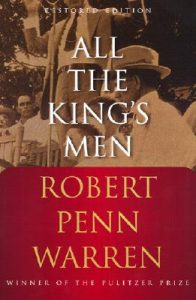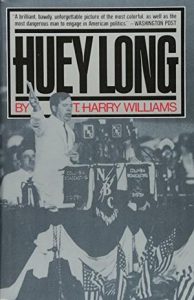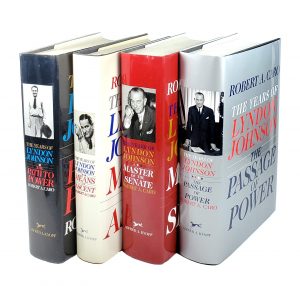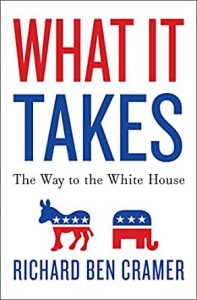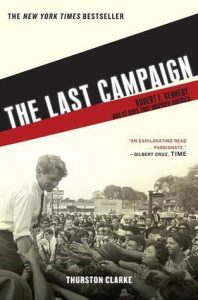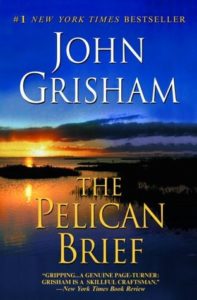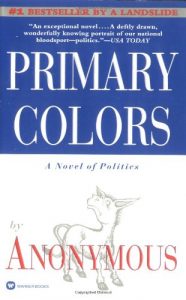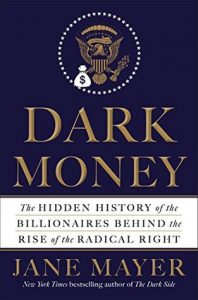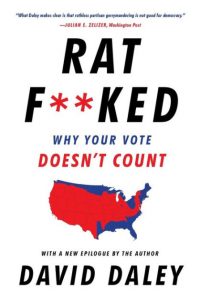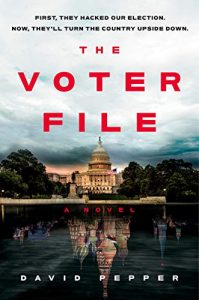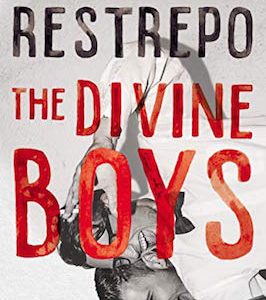Through The Voter File and my broader Jack Sharpe series, I aim to write political thrillers which work within the real-world intricacies of politics and politicians. My hope is that the stories remain credible because they faithfully track how politics in America actually work. And while I want readers to enjoy a good story, I also hope to spark broader thinking and conversation about our (badly broken) political system. My book club conversations usually do exactly that—as much time as we spend talking about Jack Sharpe and other characters, or plot details, we also brainstorm ways we can reform today’s broken politics. Incredibly, because a work of fiction is the starting point of the conversation, these conversations have always taken place amicably across party lines.
So as I write, I pull not just from my my own life experiences, but from a lifetime of consuming both political fiction and non-fiction that best capture the realities of politics.
With that in mind, here is my list of fiction and non-fiction titles that most effectively portray the real-world drama of American politics—the good, the bad and the ugly. These books walk the line between fiction and non-fiction of politics so closely, it’s hard to tell the difference.
All the King’s Men, Robert Penn Warren
All the King’s Men, the iconic political novel, delves deeply into the complex characters that drive politics, both the politicians themselves and those behind the scenes who guide, counsel and protect them. How they get their start, and how a rise to power changes them and alters their relationships. Seventy years later, so many aspects of this story remain relevant today.
Huey Long, T. Harry Williams
Think of this book as the non-fiction version of All the King’s Men. It’s been years since I’ve read this classic biography of one of our country’s most over-the-top political figures, but I still remember Long’s s wildly popular ideas, such as….he raised taxes on oil companies so he could give free textbooks to Louisiana school-children. In a political world where few politicians veer far from the conventional, this biography captures the rare moment where a political figure ventures far beyond politics as usual, stokes a populist uprising among the masses, and fundamentally changes things as they go. Of course, these rare moments can be for good or for ill.
Robert Caro’s LBJ series
Beginning with Path to Power, Caro’s epic series on LBJ comprises the finest, richest biography I’ve ever read. And due to its unique central character—the deeply flawed yet uniquely skilled LBJ—Caro’s work reads like a novel from its opening chapter, which traces the future president’s roots in the Hill country of Texas, through the final books, detailing his wild ride to the Senate and into the presidency. Scenes of LBJ campaigning to the point of exhaustion, be it for his first run for Congress in Texas or as Kennedy’s running mate in 1960, will never leave you.
What It Takes, Richard Ben Cramer
Books that follow candidates through presidential campaigns have now become a four-year tradition, but What It Takes—covering the 1988 campaign for president—not only created the genre, but did it with such detail and richness that it will be hard for any author to match. From the opening chapter of George W. Bush one-hopping a ceremonial first pitch in front of a capacity crowd, to the collapses of the Gary Hart and Joe Biden campaigns, the 1,000+ pages never stop turning.
The Last Campaign, Thurston Clarke
A close up, inspiring account of the short and ultimately tragic Robert F. Kennedy presidential campaign in 1968. Puts you right into the front seat of the incredible, roiling few months for Kennedy, and the entire country. An incredible account of what politics can be at its best even as the country is going through its worst.
The Pelican Brief, John Grisham
Many attempts at thrilling political plots hit you like a two by four—so direct and over the top that political insiders don’t buy the plot and move on quickly. John Grisham’s second big hit was refreshing because it put forward a savvy political plot worthy of the book’s success. Targeting two Supreme Court Justices, who have opposing viewpoints on numerous issues, but share a common concern about the environment and wetlands, in order to impact a case working its way through the courts, is the type of more subtle conspiracy I look for in my own books. Often the levers of power in politics are hidden beneath the surface—those seeking to do damage to our nation and get away with it would seek to pull those levers first.
Primary Colors, Anonymous
Think of it as the modern-day All the King’s Men. Fiction based loosely on the 1992 Democratic election, Primary Colors puts the reader up front and center in the throes of a heated primary in New Hampshire. As good as book at there is in capturing the up-close and very personal, physical aspects of modern day campaigning: “The handshake is the threshold act, the beginning of politics.”
Dark Money, Jane Mayer
A must read to understand today’s political challenges. It’s essentially the story of the Koch Brothers—the best book out there detailing the overwhelming influence of huge amounts of money on today’s politics, and the countless ways that that money seeps into every corner of our political system.
Ratf**ked, David Daley
This book walks readers through the other major pillar of today’s broken politics (in addition to “dark money”), extreme partisan gerrymandering. It details how after much preparation, 2010 became the year that Republicans perfected the art of rigging districts, leading to the decade of deep political dysfunction that we’ve endured. The “Redmap” strategy would have made for a great novel, but it actually all happened, and we’re still paying the price today.
***


